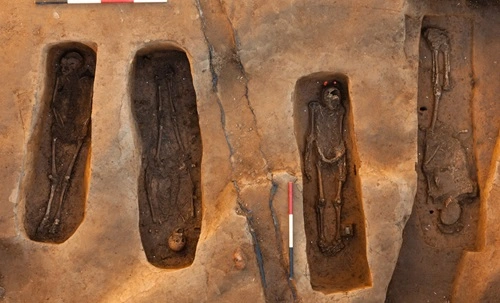Yes, it is illegal to dig up a grave in the United States without proper authorization. Grave excavation, also known as grave desecration or grave robbery, is a serious offense under both state and federal laws. Unauthorized grave digging can result in criminal charges, including desecration of human remains, theft, and vandalism, as well as significant civil penalties.
Legal Framework Governing Grave Digging
1. State Laws on Grave Desecration
- Each state has laws prohibiting the unauthorized excavation or desecration of graves. Penalties typically include fines, imprisonment, or both.
- Example: In Texas, grave desecration is classified as a felony offense, with penalties including up to two years in prison and fines of up to $10,000.
2. Federal Protections
- Federal laws such as the Native American Graves Protection and Repatriation Act (NAGPRA) provide additional protections for Native American burial sites. Unauthorized excavation of these sites can result in federal charges.
3. Cemetery and Burial Regulations
- Many states have specific regulations for managing cemeteries and burial sites, requiring permits for any authorized grave excavation, such as exhumation for legal or familial purposes.
When Grave Digging Is Permitted
1. Court-Ordered Exhumations
- Courts may order the exhumation of a body for reasons such as criminal investigations, disputes over the deceased’s identity, or legal claims like inheritance or paternity.
- These exhumations are carried out under strict supervision by authorized professionals.
2. Reinterment or Relocation of Burial Sites
- Families may apply for permits to relocate a grave, often due to land development or familial decisions. Approval from local health departments and compliance with state laws are required.
3. Archaeological or Historical Research
- Archaeologists and historians may excavate graves for research purposes, but they must obtain proper permits and follow ethical guidelines. In many cases, consultation with descendant communities is required.
4. Public Health Reasons
- In rare cases, exhumation may be ordered by health authorities to address public health concerns, such as the spread of infectious diseases.
Penalties for Unauthorized Grave Digging
1. Criminal Charges
- Charges may include grave desecration, theft, vandalism, and abuse of a corpse, depending on the circumstances.
- Penalties vary by state but can include:
- Fines ranging from $5,000 to $25,000.
- Imprisonment for several months to decades.
2. Civil Liability
- Families of the deceased can file civil lawsuits for emotional distress or damages caused by grave desecration.
3. Cultural Offenses
- Desecration of culturally significant graves, particularly Native American sites, carries additional legal and ethical ramifications. Violators may face heightened penalties under NAGPRA.
Ethical and Emotional Impact
1. Respect for the Deceased
- Graves are sacred to families and communities, symbolizing respect and remembrance for the deceased. Unauthorized grave digging is seen as a profound violation of this sanctity.
2. Cultural Sensitivity
- Many cultures and religions have strict practices surrounding burial and grave sites. Disturbing a grave can deeply offend cultural and spiritual beliefs.
Preventive Measures
1. Increased Security in Cemeteries
- Many cemeteries have implemented security measures such as surveillance cameras and patrols to prevent unauthorized activities.
2. Public Education
- Educational campaigns emphasize the legal and ethical importance of respecting graves and burial sites.
3. Strict Permit Processes
- Permit systems ensure that any authorized grave excavation complies with the law and ethical standards.
Related FAQs
Q1. Can I dig up a grave if it belongs to my family?
Ans: No, even if you are a family member, you cannot dig up a grave without proper authorization, such as a permit from local authorities or a court order.
Q2. What happens if someone accidentally uncovers a grave?
Ans: Notify local law enforcement or authorities immediately. Accidental disturbance is typically not penalized if reported promptly and handled respectfully.
Q3. Are there exceptions for archaeological digs?
Ans: Yes, archaeological excavations require permits and often involve consultation with descendant communities, especially for culturally significant sites.
Q4. Is it illegal to take items from a grave?
Ans: Yes, removing items from a grave is considered theft and grave desecration, both of which are criminal offenses.
Q5. What are the penalties for disturbing Native American graves?
Ans: Under NAGPRA, penalties include fines of up to $100,000 and imprisonment for up to one year for first-time offenders.
Conclusion
Digging up a grave without proper authorization is illegal and considered a severe violation of the law and human dignity. Permitted grave exhumations are strictly regulated to ensure legal and ethical compliance. Anyone found engaging in unauthorized activities risks criminal prosecution, civil penalties, and significant social condemnation. Always consult with legal authorities before considering any activity involving burial sites.


